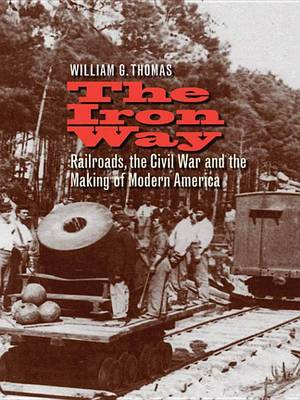A new perspective on the central role of the railroads and slavery in the coming, fighting, and aftermath of the Civil War.
Beginning with Frederick Douglass's escape from slavery in 1838 on the railroad, and ending with the driving of the golden spike to link the transcontinental railroad in 1869, this book charts a critical period of American expansion and national formation, one largely dominated by the dynamic growth of railroads and telegraphs. William G. Thomas brings new evidence to bear on railroads, the Confederate South, slavery, and the Civil War era, based on groundbreaking research in digitized sources never available before. The Iron Way revises our ideas about the emergence of modern America and the role of the railroads in shaping the sectional conflict.Both the North and the South invested in railroads to serve their larger purposes, Thomas contends. Though railroads are often cited as a major factor in the Union's victory, he shows that they were also essential to the formation of "the South" as a unified region. He discusses the many-and sometimes unexpected-effects of railroad expansion and proposes that America's great railroads became an important symbolic touchstone for the nation's vision of itself.
Please visit the Railroads and the Making of Modern America website at http://railroads.unl.edu.
- ISBN10 0300171684
- ISBN13 9780300171686
- Publish Date 25 October 2011 (first published 1 January 2011)
- Publish Status Active
- Publish Country US
- Imprint Yale University Press
- Format eBook
- Pages 291
- Language English
